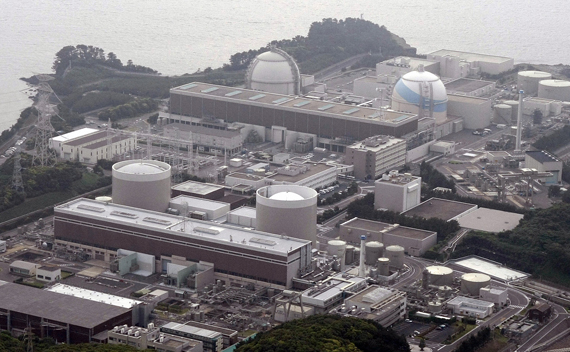Japan’s Nuclear Quandary
More on:

The Kan cabinet is facing a defining moment in Japan’s postwar nuclear debate. With the bulk of nuclear reactors now offline, the country is holding its breath over how the prime minister will proceed. Difficulties continue at Fukushima Daiichi. Dangerous levels of radiation have been reported in the No. 1 and No. 2 reactors, and new sources of food—this time beef—have been taken off the market by the Japanese government with dire consequences for the livestock producers in the stricken regions.
The short-term prognosis for Japan’s electricity supply is uncertain, yet it is the longer term effort to reform Japan’s energy policy that is the key to resolving the current impasse. Public confidence in Japan’s nuclear industry was shattered by the disaster at Fukushima Daiichi, and until the reactors are fully cooled, it is unlikely that the full impact of this disaster will be appreciated. In the meantime, decisions need to be made, and Japan’s energy supply needs to be assured.
The current political malaise in Tokyo will make reforming government oversight over the nuclear industry a prolonged—and highly charged—political fight.
Japan’s government is hoping for a political compromise with local leaders as they seek to rewrite the procedures and the oversight mechanisms that will ensure that an accident on the scale of Fukushima Daiichi will not be repeated. The prime minister shut down the Hamaoka reactor in May after seismologists predicted a high likelihood of a major earthquake centering on Shizuoka Prefecture, just south of Tokyo. To reassure the rest of Japan, the Nuclear Industrial Safety Agency (NISA) sent inspection teams to each of Japan’s nuclear reactors, who gave the thumbs up to those offline to be restarted. Banri Kaieda, minister of economy, trade, and industry, himself worked hard to reassure local officials, and Hideo Kishimoto, mayor of Genkai village in Saga Prefecture, suggested that he would be willing to approve the restart of his community’s reactor. This first breakthrough for Minister Kaieda was taken as a hopeful sign that other local leaders around the country would follow suit.
But the effort to persuade local communities to restart nuclear reactors has faltered. The prime minister himself derailed this effort when he suggested that past practices of safety testing were insufficient, and that Japan ought to develop a “stress test” similar to those used in the European Community to ascertain the safety of Japan’s aging nuclear reactors. This interjection into the delicate negotiations between the Ministry of Economy, Trade and Industry, NISA, and local communities upset Saga leaders, and Mayor Kishimoto rescinded his permission to restart the reactors at Genkai. To make matters worse, revelations that the Kyushu Electric Power Company asked its employees to phone in their support for restarting the reactor at a public town hall meeting has tainted all local discussion. Even Saga Governor Yasushi Furukawa has been implicated in the effort to rig the public poll.
Thus, the government’s hope that Japan’s nuclear reactors would be brought slowly back online this summer has been dashed, and the conversation about how to move forward remains inconclusive. Instead of working with the government, opposition party leaders seem hell bent to emphasize the battle lines—painting the prime minister as an anti-nuclear activist and hurling personal insults at Minister Kaieda in the parliament in a manner more appropriate to a street brawl than to a public policy debate.
The politics of the moment are likely to intensify further. There is deep public anger with the nuclear policies of the past, and with the inability of the current government to bring an end to the Fukushima Daiichi dangers. (To be continued…)
More on:
 Online Store
Online Store